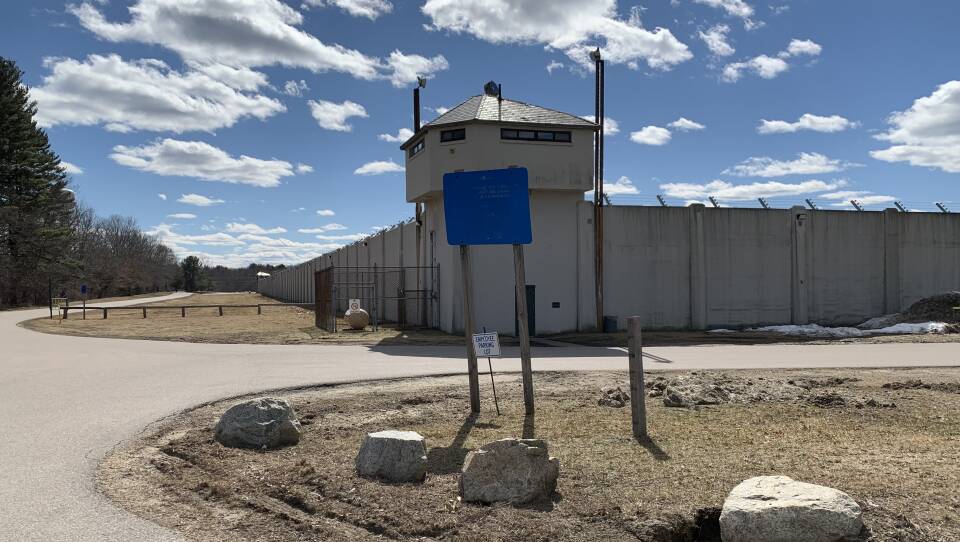At least 140 incarcerated people have tested positive for COVID-19 at the Massachusetts Correctional Institution in Norfolk, Mass., — about 11% of the population at the medium security facility that houses some of the state’s oldest and sickest inmates.
Two prisoners have been sent to a nearby hospital for care and are said to be in stable condition, state officials said Monday.
The news is prompting concern among prisoners advocates and family members, not just because of the outbreak — a potential sign of a second wave in the state’s prison system — but because the population at Norfolk is likely more at risk of COVID-related complications.
“We are very worried about folks who are particularly vulnerable to succumbing to COVID,” Elizabeth Matos, executive director of the Boston-based nonprofit Prisoners' Legal Services, told GBH News. “This is by definition disproportionately a population that suffers from chronic care issues like diabetes and heart conditions, Hepatitis C, HIV.”
MCI-Norfolk houses a 20-bed unit for some of the state’s most ailing prisoners, called the Critical Stabilization Unit. Nearly 21% of the entire prison population is 60 years old or older, according to state data, compared to about 12% systemwide.
Department of Correction officials say they ordered facility-wide testing at Norfolk last week after learning about two positive tests; results of 300 tests are still pending. So far, none of the positive cases were housed in the Critical Stabilization Unit, prison officials say.
Since the beginning of the pandemic earlier this year, eight state prisoners have died of COVID-related illnesses and at least 540 incarcerated people of about 6,800 have tested positive across the system, according to data made available by the American Civil Liberties Union of Massachusetts.
This number does not include all new cases in Norfolk. The state also is reporting 19 new positive cases at the minimum security prison at MCI-Shirley after a positive case prompted the testing of all 196 incarcerated people there. There’s also one active case at MCI-Cedar Junction, prison officials say.
Prisoners advocates have been pushing to reduce the prison population to allow for more social distancing behind bars and say not enough is being done. The recent outbreak is a troubling change from late September, when active cases dropped to zero and the state started to loosen restrictions, including allowing visitors to most facilities.
“What’s happening in Norfolk is the unfortunate and foreseeable result of not releasing people — via parole or home confinement — and inconsistent testing,” said Anthony Benedetti, chief counsel of the Committee for Public Counsel Services, the state’s public defender’s office.
Dirk Greineder, who is currently incarcerated at MCI-Norfolk, wrote GBH News in an email dated Friday that prisoners aren’t being provided official information about what is going on. Greineder is a former Wellesley doctor convicted of killing his wife in 1999. He writes a blog for a website called the RealCostofPrisons.org and says the prison remains crowded with no ability to social distance.
“We really need intervention from outside to oversee that best practices are implemented,'' he wrote to GBH News, "and that those that get sick are adequately cared for in the midst of this rampant confusion."





